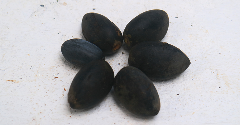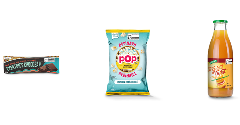Singapore becomes first country to approve lab-grown meat
4 Jan 2021The Singapore Food Agency, the city state’s regulatory body for food, approved San Francisco startup Eat Just’s cell-based meat chicken product, paving the way for its sale in the country.
Eat Just’s cultured chicken will initially be used in chicken nuggets, according to The BBC, but there is no timeline on when the product will be released. However, the company said that when it debuts its chicken nuggets they will retail for a price that is comparable to premium conventional chicken products. Last year, the same chicken nuggets would have sold for $50 a piece.

Singapore found that cultured meat is safe for consumption, however, Eat Just went further with the number of accolades that it attributed to cell-cultured chicken, pointing out in a release that its lab-grown chicken had a lower microbiological content than conventional chicken and that its chicken was grown using no antibiotics.
But Singapore is not the only country in which Eat Just is working toward regulatory approval. Food Dive reported that the cell-based meat company is striving for approval in the U.S. as well as one other location that remains undisclosed. In addition to seeking additional approvals for its chicken products, the company is also developing other products that are both cell-based and plant-based.
In 2020, Eat Just received funding to manufacture its mung bean Just Egg product in Singapore. It is also working to produce cultured wagyu beef with the Japanese meat producer Toriyama. Food Dive reported that the company will present a culture beef line as the next product for regulatory approval.
Unlike plant-based meat substitutes, cultured or cell-based meat is a lab-grown product derived from real animal cells. Although the product is not vegetarian – the cells are taken from live chickens – manufacturers are looking to appeal to this demographic since this method of meat production does not entail killing animals. At the same time, another major demographic that cultured meat manufactures are looking to appeal to are carnivores.
Meat eaters and flexitarians – those who choose to occasionally consume a plant-based diet – are a major component driving the growth of meat alternatives, a category that the investment firm UBS forecasts to rise from $4.6 billion in 2018 to $85 billion in 2030. A primary reason for this astronomical growth is due to the health associations of meat alternatives. Fifty-two percent of U.S. consumers are eating more plant-based foods because it makes them feel healthier, per a study from DuPont Nutrition & Health found. Cell-based meat, however, is having a more difficult time taking off.
A 2019 poll from marketing firm Charleston|Orwig found that 40% of consumers found lab-created food to be “scary.” Nevertheless, a more recent report from the consulting firm Kearney anticipates that 35% of all meat consumed worldwide will be cell-based by 2040. With opinions on the subject evolving and companies making headway in terms of regulatory approvals, it is unlikely that the development of these cell-based alternatives will slow down. Instead, production is likely to increase, and the proliferation of these options may even result in changing opinions in regards to their appeal.
Related news

‘Super nut’? Indonesia’s ‘best kept secret’ wins EU novel food approval
6 Dec 2022
A previously obscure, nutrient-rich Indonesian nut is set to hit European shelves after winning EU novel foods approval that could also help protect under-threat kenari forests on the archipelago.
Read more
EU lowers maximum levels for dioxins and dioxin-like PCBs in food
21 Nov 2022
The European Commission (EC) has moved to lower maximum levels for dioxins and dioxin-like polychlorinated biphenyls (PCBs) found in foodstuffs produced in or imported into the EU.
Read more
FDA in ‘critical milestone’ for cell-cultured meat in US
18 Nov 2022
The US Food and Drug Administration (FDA) has completed its first pre-market consultation of a cell-cultured chicken product made by UPSIDE Foods, a development that has been hailed a “critical and inspiring milestone in the history of cultivated meat”...
Read more
Food warning labels are inconsistent in discouraging unhealthy foods
25 Oct 2022
A front-of-pack nutrition warning label is more of a deterrent on breakfast cereals than indulgent products, such as chocolate and cookies, according to findings from a recent Chilean study.
Read more
UK baby food brand unveils recyclable pouch in sector sustainability drive
16 Sep 2022
Baby food maker Little Freddie has launched a fully recyclable baby food pouch and is calling for other baby food manufacturers to follow by adopting more sustainable forms of packaging.
Read more
How investing in sustainability drives value for brands
15 Sep 2022
Consumers are increasingly conscious of the environmental, social and corporate governance (ESG) credentials of companies and products they invest in. How can certifications such as B Corp drive value for food and beverage manufacturers?
Read more
PFAS breakdown process sheds light on “forever chemical” use in food industry
9 Sep 2022
PFAS, or per and polyfluoroalkyl substances, are once again in the spotlight after new research details a method for decomposing these “forever chemicals” that have been detected in certain foods.
Read more
NutriScore algorithm update a ‘step in right direction’
7 Sep 2022
Campaigning organisation Foodwatch International is hailing the update to the NutriScore algorithm as a “step in the right direction” but says there is still space for further improvement.
Read more
Voluntary actions by industry ‘ineffective’ for public health, warns ‘realist review’
19 Aug 2022
Reliance on voluntary actions to control the composition and marketing of unhealthy foods and drinks by industry is not effective and results in weaker regulations in low- and middle- income countries, warn researchers.
Read more
Canada rolls out new front-of-pack ‘magnifying glass’ label for high salt, sugar and fat foods
26 Jul 2022
Canadian authorities have launched a new front-of-package nutrition label designed to help shoppers make more informed product selections as they purchase groceries by highlighting foods high in specific ‘unhealthy’ nutrients.
Read more